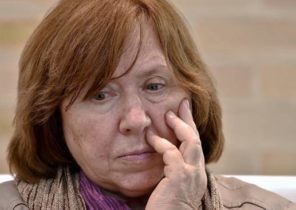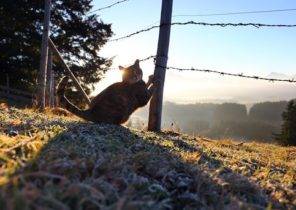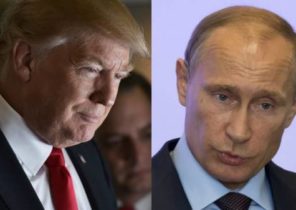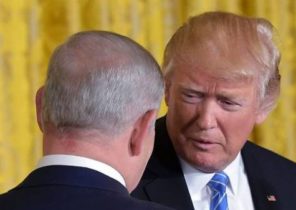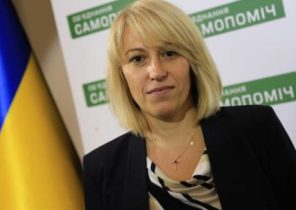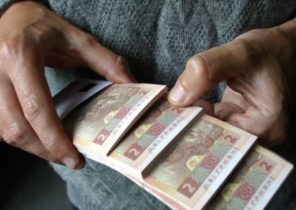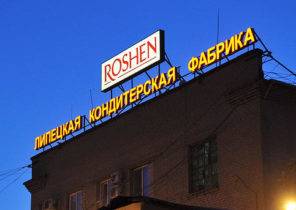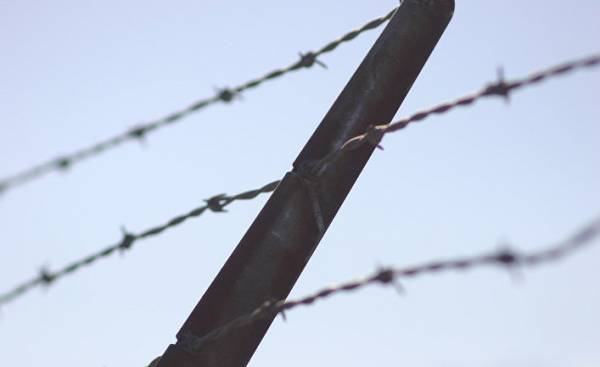
Alexander Eresin late. He got lost in the subway. To move alone in the city with three million inhabitants, still unusual for him. For many years he had to wait for freedom. Much longer than was necessary. In 2011, the 30-year-old Ukrainian of car theft was sentenced to 8.5 years imprisonment in April 2014, the interim head of state Oleksandr Turchynov announced an Amnesty, Efrosina had to let go. It didn’t work out. Because according to the will of fate, he was in prison in the LC.
“I have not released, because in Lugansk in the 2014 coup, and all the Ukrainian courts and other state institutions were closed. My lawyer applied for release, but Luhansk authorities rejected it. They said that Amnesty is the decision of another state that they will not implement”.
Young muscular man survived the occupation of Eastern Ukraine by the separatists and the Russian military in the colony. A disproportionate number of camps where prisoners usually serve their terms, located on the East of the country, said Parliament Commissioner for human rights Valeria Lutkovska.
“20% of the colonies are in the East of Ukraine, and there serving time is really a large number of people.”
Almost all of these camps are in the occupied territory of Donetsk and Lugansk regions — that is, in the hands of the separatists, says Paul Lisyansky, founder of the organization “Eastern-Ukrainian human rights group”.
“Since Ukraine has lost control of the Luhansk region, in the occupied territories are eleven of the twelve camps.”
Forced labor is commonplace for prisoners
That is almost all. More than 5,000 people are in detention in the LC. Many of them, like Alexander Erexin — was supposed to be released in 2014, but are still in prison. Because the so-called people’s Republic use them as cheap labor. All prisoners have to do hard forced labor, says a former prisoner.
“At first, I had to fell trees. Then the work became even harder. I had to produce the concrete blocks that colony sells to construction companies. The worst were concrete pillars that we did for mining companies, which use them for mines. From 7 a.m. to 7 p.m. I worked and did not receive money for it. Sometimes we were given cigarettes. Previously, it was possible to decide for themselves whether they want to work in the prison, there was no such duty. For example, you can work only two hours a day. But now they decided that it was a labour camp, and who refuses, it is punished by the administration in isolation, that is, the Shu.”
About 10 thousand prisoners at forced labor
Memories of the Soviet Gulag. Human rights group Pavel Lisyansky conducted 74 interviews with prisoners, their relatives and witnesses who are faced with significant human rights violations. He accuses the new leaders of the occupied Donbass in the organisation of a network of labor camps and talks about the Gulag, approved by Moscow.
“In Europe we are dealing with slave States.”
About 10 thousand prisoners in the camps of both people’s republics separatists are involved in forced labor.
“This is a direct violation of human rights by the so-called people’s republics. In addition, it violated the labor law, which prohibits forced labor. Production of so-called people’s Republic of sell on the market. If they released these slaves, they would lose an important source of income”.
The people’s Republic of profit, it goes to funding their system of government, which was installed and supported by Russia. The income alone Luhansk authorities from working in the colonies, “Eastern human rights group” is estimated at 300-500 thousand euros per month. As the comparative base does 2012. With the exception of three colonies in all work as before, but now without pay. This is the main reason of prolongation of terms of imprisonment.
37-year-old Adam, who has a wife and children, had to be released under the Amnesty three years ago. To meet him is not possible, but you can call. He, too, is a prisoner in a labor camp. Adam is a fake name, he agreed to interview only on condition of anonymity.
A phone call in jail
Sabine Adler: Tell us a little about yourself and where You are.
Adam: At the Krasny corrective colony (No. 19) in the Luhansk region. I’ve been here eight years and seven months. In total I got ten years. I’m not working, refuse.
— You have to work?
— Yes, it should work. Wear the stones, to cut, repair, miscellaneous work, but it’s always hard work.
You get the money?
No, not really. Although the wait — cigarettes and tea. More food is not allowed.
— How many people in the colony and how many of them work?
More than 600 people, most of them working, much more than half. The one who refuses, the consequences are not very pleasant.
— Then what happens?
— Sent to the punishment cell in the basement. It is at least 15 days, then three months, then six months.
— Have you noticed, when the occupation?
— Most of the guards left, we heard the noise from the clashes outside the camp, then the regime was very strict, everything had changed.
— When You will release?
— I have long had to be released under the Amnesty. Like many others here. But new heads hung here the announcement that the decisions of another state are not executed.
Release after more than three years
And Adam was in prison, in the basement. When he was released, is unknown. Adam has a phone, like all prisoners. Alexander Fresina, who was released, there was even a smartphone, it’s salvation for him.
“I wrote from the phone to the Red cross, asked for help. As a contact gave my sister’s address. Three days later Paul Lisyansky said he wanted to help.”
The red Cross gave information of “East Ukrainian human rights group” which joined at the end of last year. Four months later, on March 20 this year, he finally received from the Luhansk authorities documents about the liberation — and a new passport, since the separatists do not recognize Ukrainian documents.
The news of the release of Alexander Efrosina suddenly flew over the colonies. Since then, the smartphone is prohibited. Adam, we spoke on the phone, would like to have the assistance of Paul Lisyansky. In total his help, asked more than 100 people. The prospect of finding a solution is small, because even the most senior politicians in Kiev are not aware of forced labour, which financed the occupied territory and held prisoners over a specified period of time.
For example, Vice-speaker of the Verkhovna Rada Oksana Syroid and her party “Self-help” are among the critics in Kiev. Her party withdrew from the ruling coalition with the presidential party “Block of Petro Poroshenko” and is now in opposition.
“Everyone complains that the Ukrainians are suffering in the occupied regions, and so it is. We can’t help them, because Ukrainian law does not have power. Russia is not responsible for the people, because they do not recognize the occupation. Prisoners who were in the colony before the occupation we can not be contacted. Ukrainian police, gorprokuratury and I, as the Vice-speaker of the Verkhovna Rada can’t get there”.
Oksana Syroid lays the blame not on anyone but only on the President. Because Poroshenko is refusing to declare martial law. Discussions on this topic are from the beginning of hostilities in the East of the country. Since the involvement of the army in their own country legally more than questionable.
“The Ukrainian government is now unable to help”
The Commissioner for human rights Valeria Lutkovska, not representing any political party, also sees the situation of forced labour in the colonies the guilt of the Ukrainian state.
“Because of the conflict these people are punished twice. The state sentenced them to punishment, but it can’t now to protect them from danger. The state they now can not help”.
Suffer and the families of those convicted. Prisoners in the occupied areas in the colonies could not be visited. The danger to be detained, declared a supporter of Kiev is too high, knows this aleksanr Erexin from his own family. She couldn’t even pass him the food that he was urgently needed due to poor supply of the colony.
Human rights activist Paul Lisyansky indicates the absence of serious interference Kiev to the situation of neglected prisoners. They are ordinary criminals, they have no protection unlike, for example, from prisoners of war.
“They are not political prisoners. In the course of talks has begun to speak about them. Ukraine doesn’t know how to handle them, there are no laws. Nobody wants these prisoners, but they are people whose rights are being violated.”
The separatists are trying to recruit prisoners
Activist Lisyansky come from Lugansk. If he’s gonna be in the city, it will probably immediately arrest the separatists. However, he receives information, for example, that in the colonies are trying to recruit prisoners. The separatists offered a reduced sentence to those who join the armed rebels. Lisyansky says that two prisoners were thus freed.
Valeria Lutkovska knows more than is known to the public. However, she never talks about it because its still a work in progress. And she doesn’t want to put her in danger.
“I’m doing my best to put as many prisoners to Kiev-controlled territory. Those who still have to serve your sentence. To date, we have freed 176 people”.
The majority of prisoners are people of very large or even life sentence. At a time from DND to Kiev-controlled territory they can take out a maximum of 20 people. The media only talks about the existence and movement of prisoners on forced labor in the people’s republics, it doesn’t say a word.
“I have information, as we speak, with those rescued from there. I give comments only when we take out all the prisoners. Not until the negotiations”.
Unlike Lysenko, who spoke about the figure of 10 thousand prisoners, Lutkovska more careful in the estimates. “This is a very difficult question, because there is no list of who was there or who have already been released and is now in the DNI and LC. DNR can still negotiate about the transfer of prisoners, with the LC generally does not work, from there we have no one rescued”.
In early July an attempt was made to visit the occupied Luhansk region, but the Ombudsman was again denied. In both people’s republics, there are over 20 colonies.
“There is a colony of 150-200 inmates, and there are those where there are many more. There are now prisoners who had been convicted prior to the beginning of the conflict Ukrainian courts and also condemned so-called people’s republics. Also, there are prisoners of war. Therefore, it is difficult to say what is the number of people”.
In the largest camp, colony No. 17 near Lugansk are nearly 1,500 prisoners. Paul Lisyansky says about human rights violation both from the Kiev-controlled territories and the occupied Donbass. In addition to forced labor and recently it keeps track of the convicts, which no one supports.
The human rights organization makes demands to Kiev, Moscow and separatists
“For three years, in which the laws of so-called LNR, there is litigation convicted of 3,200. Perhaps some of them were real criminals, but they had no defenders, because of that right there. There wasn’t an adequate investigation of cases in which they were accused. It is unclear how justified their sentences. We are talking about 3200 cases. We don’t know who condemned these people. We have informants, we have to check.” I’m not sure that it was only the judges of the LC. Probably worked there and the judges from Russia.
One small human rights group do not have enough funds for these investigations. It requires from the Ukrainian government compile lists of persons and assistance to move to the territory controlled by Ukraine. In addition, it is necessary to investigate eyewitness testimony about slavery, detention and torture in labor camps in the so-called people’s republics.
From the leaders of the national republics, they require to stop the torture, to investigate such cases and to remove perpetrators from the service. They should ensure that representatives of international organizations such as UN, Red cross and OSCE access to the colonies. They urge Russia to exert pressure on the heads of the republics.
Asked to comment on the situation of forced labour, torture and the extension of the term of imprisonment, the administration of the so-called people’s republics did not answer.
During the negotiations in the Normandy format, involving Germany, France, Ukraine and Russia, the topic of slave labor in occupied Donbas yet does not play any role. And at the negotiating table in Minsk has not yet moved on this issue.
“For a long time, this issue is just me, recently, this question was discussed at the Minsk talks. However, the priority there are prisoners of war,” — said V. Lutkovska. Paul Lisyansky addressed the problem of forced labor in prisons separatists in Parliament. Yet without results.
“Many say that they are criminals. I say they are citizens of Ukraine, who are not there to leave. About them nobody cares, as opposed to political prisoners or prisoners of war. But the prisoners — our people part of our society. If we ignore them, they are angry at us, that will lead to bad consequences.”
He is determined to continue the fight for prisoners in the “Gulags” of the so-called national republics, because they have no protection.

